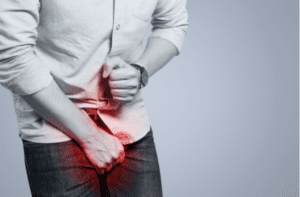Ways To Manage Male Urinary Incontinence

For men, urinary incontinence is almost always a symptom or issue following prostate surgery or removal. However, it can be in men with healthy prostates as well. Regardless of why the incontinence occurs, there are several ways to manage male urinary incontinence and reduce the likelihood of accidental leakage.
Take a look at your diet. For many men, certain food or beverages can trigger urinary urges or even irritate the bladder. Most common among these are alcohol and caffeine. Both can irritate the bladder, and since alcohol is a diuretic, it causes your body to try to rid itself of excess water. Some men also report similar feelings toward chocolate or spicy foods. Although this will involve tracking what you eat and drink, it may help reduce accidental leakage.
Train your body. Not unlike the muscles in your body that you would work out at the gym, you might be able to train your bladder and body to strengthen your ability to reduce accidental leakage. Begin by tracking when you urinate during a normal day and look for patterns of times where you go more frequently. Then, begin to force yourself to go once, during those times whether you feel the urge or not. Over time, you should be able to extend the times between urination.
Pelvic floor exercises. Also called “Kegel exercises,” strengthening your pelvic floor muscles involves flexing the same muscles you would use to stop the flow of urine. These exercises will help strengthen the muscles around the urinary tract and give you more control. As flexing these can be invisible to the outside, you can perform these exercises any time of the day.
If you are suffering from male urinary incontinence and want to hear more about management or treatment options, call Dr. Shrid in Chattanooga, TN at 423-778-4636 or visit www.drshrid.com to schedule a consultation today.


